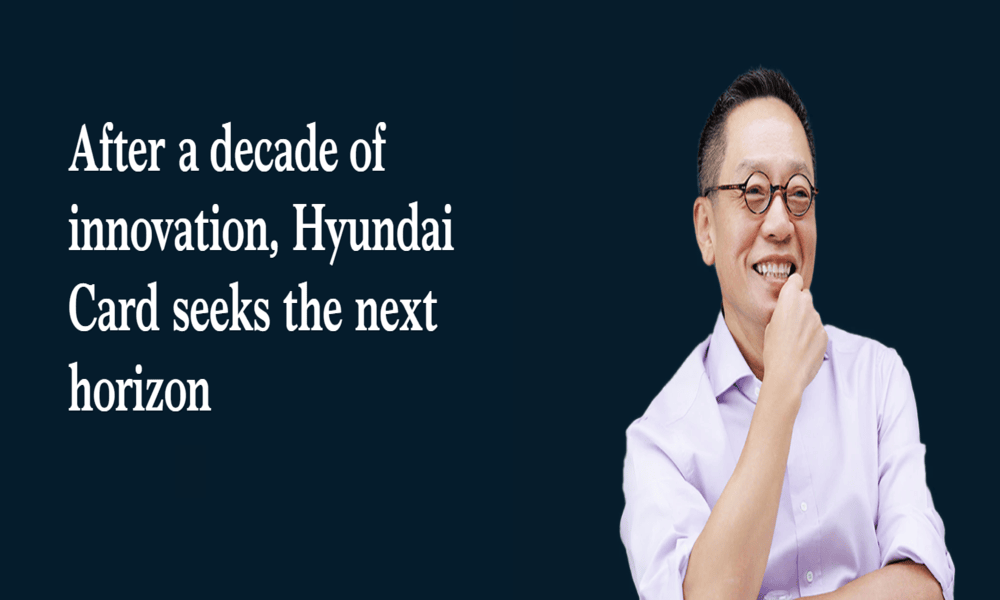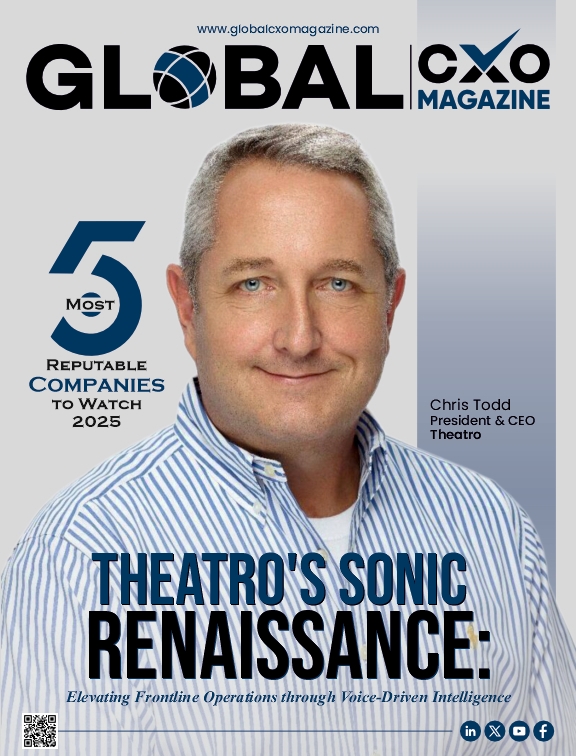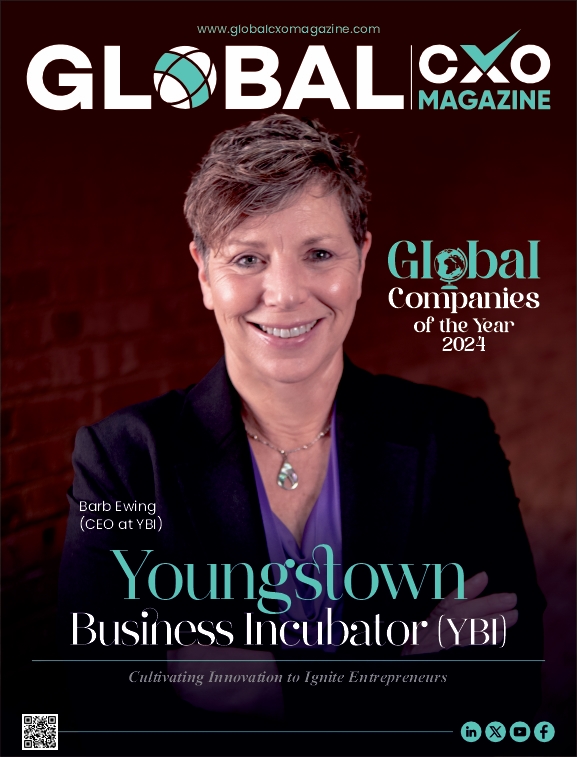Hyundai Card’s vice chairman and CEO, Ted Chung, built a reputation for discarding old ways of working in favor of innovative approaches that helped build the company’s consumer finance brands. As economic headwinds and disruption mount, he has turned his focus to building a global data platform while maintaining balance between innovation and stability. In this interview, Chung spoke with Seungheon Song, McKinsey senior partner and managing partner of the firm’s South Korea office. The following is an edited and condensed transcript of their conversation.
Seungheon Song, McKinsey: We spoke with you nearly a decade ago. At the time, the company had been struggling, and you undertook bold innovations, especially around branding and marketing. How has the company’s approach to innovation evolved over the past ten years?
Ted Chung, Hyundai Card: When we last spoke, the company was deeply focused on building a brand that could effectively translate our product to the marketplace—and we’ve made significant progress on that front. Over the past decade, our primary focus has been data. As competition began emerging from technology and data-centric companies, it created a real sense of urgency. That’s what pushed us to make a pivotal shift from marketing-led to data-driven innovation. We integrated data science across our entire value chain to optimize our operations. Beyond that, we leveraged it as a strategic differentiator to establish an exclusive, first-of-its-kind private label credit card (PLCC) partnership, which has been a cornerstone of our second-wave growth over the last ten years.
The reasoning behind this shift was rooted in the data capabilities we sought to build. It might make perfect sense now, but at the time it was not necessarily an obvious move. Today I think everyone understands that while traditional credit cards focus primarily on financial transaction data to understand customers’ spending history, PLCCs incorporate integrated data from partner companies, encompassing customers’ purchase intentions, preferences, and behavioral patterns. As a result, data analytics has become a critical success factor for PLCCs. Moreover, Hyundai Card ultimately needs to help its PLCC partners strengthen customer loyalty through data-driven activities that increasingly overlap with those of big tech and fintech companies; so the organization inevitably needs to enter domains such as data-driven reward design, customer analysis, and recommendation algorithms.
Seungheon Song: Several years back, you began describing Hyundai Card as a digital data company, rather than just a credit card company. What was your thinking in doing that?
Ted Chung: I intentionally exaggerated the message to spark change within our organization and among our employees, and in the broader industry. Change doesn’t just happen overnight. Even when early signs of transformation appear, most individuals and companies tend to deny them initially.
However, when the signs continue and the trends repeat, the market inevitably reaches a point where it must adapt. In the digitalization of finance, one of the first major signs was start-up funding beginning to flow into the financial industry and what became known as fintechs, and then the emergence of new payment systems like Apple Pay and Google Pay, followed by changes in regulations.
Today AI is sparking similar transformations. Initially, there was skepticism about whether AI could truly change our world, but we’ve now moved beyond that, acknowledging that generative AI inevitably has a role to play in finance. Of course, given the rapid pace of technological and market changes, it’s still uncertain how exactly this relationship will unfold. However, at the very least, once we recognized this nature, we knew we had to take action. That’s why we made the decision to invest in digital transformation.
Seungheon Song: Hyundai Card has occasionally faced skepticism about the scale of these investments. How do you respond to those critics?
Ted Chung: To me, the question feels like the equivalent of asking someone in 1910 or 1920, “Why did you decide to adopt internal combustion engines?” My counter-question is: “How would you endure the pain of not investing?” And, “Can you afford to ignore the importance of data?” If one were facing a life-saving surgery, the risk of not undergoing the procedure outweighs the discomfort of the operation itself.
In my view, Hyundai Card’s digitalization was not an option. I concluded from a very early stage that the pain of avoiding [digitalization] would be far greater than the pain of embracing it. And when assessing investment risks, the prerequisite is to define what constitutes a digital company. Even for Hyundai Card, which is strongly focused on digital transformation, defining that remains a challenge. One of the reasons is that the concept is a moving target. Some people define it narrowly, making our investment seem excessively risky, while others define it broadly, in which case our approach would seem reasonable. This difference in perception is why I don’t consider our digital investments excessive, nor do I hastily judge other companies for investing less. The hardest part is always defining the problem itself.
Seungheon Song: Were you confident that Hyundai Card’s bold digital transformation would succeed?
Ted Chung: Absolutely not. I was never certain of success, and I still don’t believe our digital journey is complete. In fact, I always feel a sense of unease, probably because I’m an early adopter of technology. To overcome uncertainty and embrace new input, I constantly engage with experts across industries, asking questions and gathering insights. Based on the ideas gained from such interactions, I explore opportunities, try new things here and there, and follow the paths that open up. In fact, one of my core concerns is people might think that Hyundai Card’s digital journey is complete. Digital transformation is evolving so rapidly that there is no such thing as completion, ever.
The hardest part for me, as a leader, was that I could not guarantee success, no matter how much we tried. I wish I could make the promise that our investments would lead to certain changes or results, but this is an ongoing battle, full of ambiguity. All we can do is continue the various attempts and achieve milestones along the way.
Seungheon Song: Attracting and retaining digital talent is critical to all companies today. What is Hyundai Card’s talent strategy, and how do you think about digital talent specifically?
Ted Chung: Once again, we need to start with defining the concept of digital talent. This might refer to talent in digital-related fields, or talent in general in the age of digital. At least one thing is for sure—HR should play a key role in any company in defining, discerning, and selecting the right talent.
When it comes to digital, one often thinks of developers and engineers as core talent. But equally important are those who drive digital business in early stages and project managers who play a bridging role between functions. There is also demand for people who perform various supporting roles that enable the digital transformation to take place properly. This is why the concept of digital talent in our company is broadly defined. And I’d say that this marks a significant step in Hyundai Card’s evolution—the distinction between digital talent and financial talent disappeared.
To make the best use of talent, we alternate between focusing our people on specific initiatives and distributing talent across functions. Initially, due to a limited talent pool, we concentrated talent into small, specialized teams. Later, we distributed them across various areas of the company. This was efficient in terms of spreading knowledge throughout the organization but also slowed down core development. So we regrouped them at a certain point, going through cycles of consolidation and distribution. After repeating about two such cycles, I noticed that the concept of digital talent no longer existed as a separate category. Having absorbed the digital competencies, the organization saw an overall advancement in our people’s digital mindset and skill levels.
Seungheon Song: Where do you find your inspiration and energy to keep innovating?
Ted Chung: A company grows as much as its CEO knows and learns. If a CEO heads in the wrong direction, the company will follow. That’s why it’s crucial to keep an open flow of interactions and information. I deliberately converse with a lot of people to feed my inspiration and learning. You’d be surprised at the diverse range of people I meet. In one sense, the wider the diversity, the better, but the trade-off is that the depth of interaction can be limited at times that way. So to ensure meaningful conversations and deeper connections, I try to keep my evenings free. Business meetings take place during the day, while my evenings are reserved for meeting people outside of work. These cross-disciplinary conversations provide valuable ideas, insights, and inspiration.
Interestingly, inspiration doesn’t always come from a single conversation or person—it often accumulates collectively. Say, a conversation with person A may not immediately spark an idea, but after later discussions with persons B and C, something clicks. Even topics from entirely different fields, seemingly unrelated, begin to form patterns in my mind. Recognizing these patterns is, in a way, the beginning of inspiration.
To maintain curiosity, one must dive deeper into the subjects that spark interest. For example, yesterday, I read a physics book about Newtonian determinism—not because I needed to, but to overcome my fear of complex scientific terms. Similarly, to engage more actively in financial topics, I try to better understand the terminology and strategies in private equity funds. For instance, I could trigger conversations like, “When it comes to PDFs [private debt funds] and PEFs [private equity funds], which is the better option in today’s market?” when talking with relevant people. I sometimes ask myself why I would voluntarily put myself through all this amid my busy schedule. And sometimes I find myself falling asleep with yet another book in hand. But I’ll keep on doing this. I think it’s a critical part of being a good CEO.
Seungheon Song: What’s next for Hyundai Card, now that you’ve laid the foundation for data-based financial services? Given that the current economic conditions are unsettled, how are you thinking about the future?
Ted Chung: First of all, we should take into account the chronic downturn of the domestic market. The economic headwinds faced by our market today will outlive past crises such as the Asian financial crisis in the late 1990s, which led to IMF funding, or the Great Recession triggered in 2008. Given the current circumstances, Korea’s economic growth will not show the previous growth momentum in the near future. The challenges include the decline of self-employment, our aging population, high household debt, and so forth—all leading to a vicious cycle. Businesses here can no longer afford to care about business models or brands—rather, it will be a fierce survival battle for operational efficiency, in which cost cutting and efficiency will be the top factors for all.
When we look beyond the domestic market, the short- and mid-term goal for Hyundai Card is to build a global data platform and provide it for overseas card and payment players. Data partnerships played a crucial role in enabling Hyundai Card’s extensive and exclusive PLCC collaborations in the past, and, building on that success, we are commercializing our proprietary data platform to support others looking to establish similar PLCC ecosystems in different markets.
Seungheon Song: You’ve been CEO for more than two decades, and you’ve been at Hyundai since 1987. How do you think about your legacy?
Ted Chung: As I grow older, this has turned into a race against time for me. Corporate agendas are often closely tied to a CEO’s tenure. I’m fortunate to have maintained long-term leadership, which enabled me to present and execute my business vision in a consistent tone and manner. But all leaders should remember that to remain in power for an extended period, they must be willing to change. If a leader were to remain in power while refusing to evolve, wouldn’t that in a way be the biggest breach of duty? He or she must at least show gestures of effort to embrace change.
Seungheon Song: Hyundai Card is widely considered the leader in the South Korean card industry. How does that change the way you think about your leadership?
Ted Chung: In one way, we are number one, but in another, we might not be. It all depends on the criteria and perspective. What’s undeniable is that we have so far made a long and significant journey. But the next question in my mind is: Is this number-one position truly secure? The way I see it, our market share needs to be sustained over time to truly claim that top position, and much depends on the financial markets.
But at the same time, I celebrate what we have achieved. We have risen to become the market’s top player, so let us enjoy the success. Above all, I have noticed that such achievement brings positive impacts to the organization. People feel motivated and ambitious when they see a tangible outcome of their work. And it’s not just about external growth—we’ve also continued to be leaders in data-driven innovation, and we have strengthened our branding. People find joy in accomplishing what others thought was impossible. Hyundai Card today is vastly different from three years ago. Being surrounded by interesting, talented colleagues makes the journey even more exciting. Because we have experienced this firsthand, we have continued to strengthen our commitment to hiring top talent, investing in technology, and developing innovative financial products.
Ultimately, a company thrives when its employees have genuine trust and confidence in it. It’s not about abstract loyalty—it all comes down to sincerely feeling and saying, “I don’t want to leave this company right now.” That’s when you know a company is on the right track.
Seungheon Song: How do you envision the next ten years for Hyundai Card? How are you thinking about balancing digital and finance?
Ted Chung: Given the challenges of low growth, demographic decline, and sluggish domestic demand facing the Korean economy, I believe it is a critical time to reinforce our core fundamentals. My plan is to control ambition rather than just pursue it. A company may face risks chasing ambition excessively. Over the next ten years, my plan is to focus on balance and sophisticated management. While data, digital transformation, and innovation are all important, we will focus more deeply on the fundamentals of finance than ever before.
Looking back, each phase of Hyundai Card’s evolution had its own reasons. In phase one, Hyundai Card lagged behind leading competitors in scale and funding, so we had no choice but to rely heavily on marketing. In phase two, we recognized the digital shift and made a strategic move toward data and technology. These decisions, however, were largely driven by a sense of insecurity—fear of missing out or being left behind. Our heavy drive into digital was a decision for balance, as our digital capacities were greatly underdeveloped compared to our financial capacities in the early stages. Now that we have built a certain level of digital capacities, the key is to maintain balance between finance and digital.
I would like to underline balance and finishing strong at this point, instead of aggressively expanding or starting something new. By “balance,” I mean prioritizing financial services while equipping ourselves with the necessary technology, rather than technology over financial services. In other words, big tech companies are likely to have weaknesses in areas such as capital soundness and risk management. True balance between digital and finance lies in advancing digital technologies while remaining focused on the core functions of the financial industry—such as underwriting—and in applying those digital tools to enhance risk management and other fundamental financial processes. This is what we mean by “finance-oriented tech.” If we keep chasing vision after vision, we risk weakening a company’s fundamentals and triggering “vision fatigue” among employees. With a focus on maintaining balance, my vision for Hyundai Card in phase three is to be recognized as a globally commercialized data platform. We want to continue to build on our innovative foundation, and continue our transformation to reach a new level as a global data platform company over the next decade. I believe that Hyundai Card’s digital journey so far—including our innovations in marketing, finance, and digital—lays a strong foundation for the company’s next major advances.





